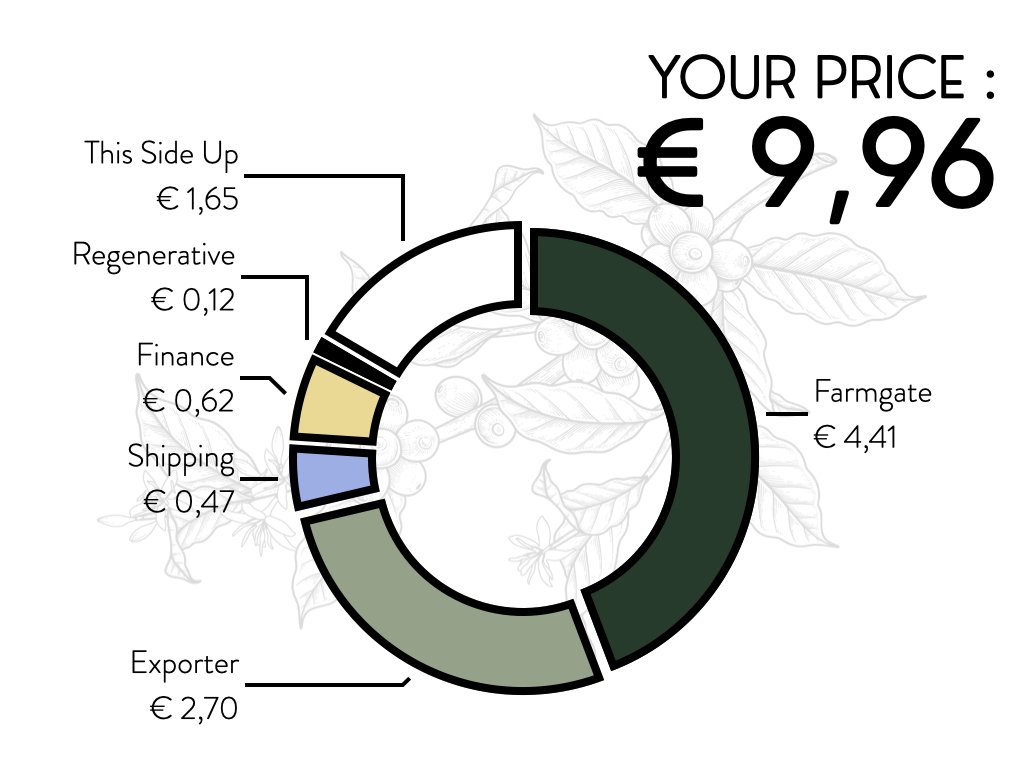empowerment fuels every cup
In 2020, the group came together to work at the microstation with a shared vision of bringing the market closer, accessing better extension services for farming, and securing improved prices for their coffee. They envision acquiring their own transport means, constructing larger storage facilities equipped with electricity, and supporting the education of disadvantaged students through bursaries for both boys and girls. However, challenges persist, including unfavorable weather during the rainy season that hampers coffee drying, slow pulping machines that delay processing, and inadequate transport means. Additionally, limited coffee volumes sometimes result in reduced prices offered by other companies and local retailers, leaving some farmers without options. Despite these hurdles, the group remains motivated by the knowledge they gain in good farming practices, the strengthened relationships with stakeholders like the UCDA and local governments, and the sense of cooperation and mutual support among members that was previously lacking. Coffee growing is not only a source of income but also a cultural tradition and, for some, a cherished beverage.
CULTIVARS
Most of the coffee grown in the Alur Highlands of north-west Uganda is SL14, a variety developed by Scott Laboratories in Kenya and promoted by the Uganda Coffee Development Authority. There is also some Bourbon, which comes from nearby DR Congo, where it dominates.
elevation
1506 meters
NOTABLE
United by their dreams, they aspire to produce high-quality coffee, practice value addition, and expand their registered farmer base from 870 to 2,500.
PROCESSING
-
The fully washed coffee processing method involves several meticulous steps to ensure quality. First, farmers are encouraged to harvest only fully ripened cherries. After picking, the cherries undergo hand-sorting and floating to select the best quality. The selected cherries are then pulped immediately. The pulped coffee is placed in an airtight fermenting bin for 36 hours to ferment. Following fermentation, the coffee beans are washed thoroughly, and defects or remaining pulp are hand-sorted. The beans are then dried to a moisture content of 13% before being stored in 50kg bags as dried parchment. These bags are held temporarily until they are transported to the main store in Jukia.
-
The price you pay for Leda natural p/kg. We agreed on this price directly with the farmers, disregarding the volatile US Coffee C price.
-
The microstation buys red cherries from the farmers. They process it and then send the dry coffee (in parchment form) to Zombo for final milling, sorting for it to be made to export grade. Farm gate in this case includes price paid to the farmer and the primary processing done by the microstation.
-
The microstation buys red cherries from the farmers. They process it and then send the dry coffee (in parchment form) to Zombo for final milling, sorting for it to be made to export grade. Farm gate in this case includes price paid to the farmer and the primary processing done by the microstation.
-
International shipping from Nebbi (Port of loading - Mombasa, Kenya) to Rotterdam, Netherlands. It is inclusive of freight, customs, insurance and warehousing costs.
-
Average financing cost owed to (mostly social) lenders. This ensures immediate payment to the farmers when the coffee leaves the farm or port.
-
A standard TSU premium on all coffees designated exclusively to accelerate farmers’ own regenerative agriculture project. Another € 0.06 is included in the final price as part of the basic income project being carried out at Zombo coffee partners in cooperation with Eight Network and This Side Up. Read more about this project here
-
This Side Up compensation for spending time and resources importing this coffee. Our work includes year-round contact with producers, managing export, shipping, import, warehousing, grading, sampling, finding and keeping roasting partners for Zombo. € 1,65 is This Side Up’s Model 1 markup. For a full overview of our modular margin construction, see the Trade Models page
Photo gallery
You may use these images freely to promote Leda’s coffee amongst your customers.






